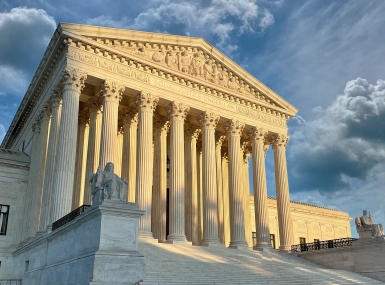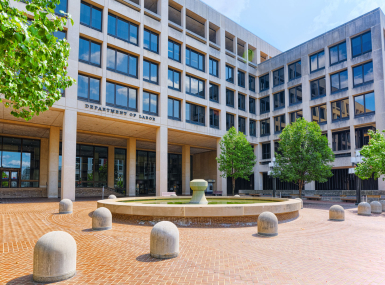NACo Legal Advocacy: City of Buffalo et al. v. Kia/Hyundai
Author

Paige Mellerio

Joe Jackson
Upcoming Events
Related News

County Nexus
The question at hand in City of Buffalo et al. v. Kia/Hyundai is whether or not the Federal Motor Vehicle Safety Standard (FMVSS) preempts state tort claims brought forth by local governments alleging that Kia and Hyundai’s failure to install “reasonable” anti-theft technology constitutes negligence and public nuisance.
Background
Design flaws in automobiles designed by Kia and Hyundai have led to a surge in theft of the vehicles, which has overwhelmed local law enforcement agencies and jeopardized public safety. Over a dozen local governments have sued Kia and Hyundai alleging that design flaws in their vehicles, such as the lack of engine immobilizers, make them highly susceptible to theft. The local governments involved in these suits assert claims of nuisance and public negligence, arguing that Kia and Hyundai were aware of these design flaws yet failed to take reasonable steps to prevent theft by incorporating various anti-theft technologies.
Kia and Hyundai filed a motion to dismiss arguing that the local governments’ allegations were preempted under federal law. The auto manufacturers argue that the government’s claims rely on a theory that would require the manufacturers to use a particular engine immobilizer, which would in turn run afoul of their flexibility under the FMVSS. The district court rejected the motion to dismiss, stating that the governments were not arguing for a specific engine immobilizer, only that they violated their duty by not installing “reasonable anti-theft technology.” Kia and Hyundai are appealing that motion to dismiss.
NACo Advocacy
In a Local Government Legal Center amicus brief in support f the plaintiff-appellees, which argues that the FMVSS does not preempt local governments from filing tort claims against Kia and Hyundai from failing to incorporate “reasonable anti-theft technology.” As local law enforcement agencies are frequently tasked with responding to the thefts caused by a lack of anti-theft technology, which requires a significant investment of time and financial resources, it is critical that local government authority is not preempted by the Court. Preserving the ability of local governments to seek recourse against corporate wrongdoing who have harmed the public safety of a community.
Current Status
On June 20, 2025, the Ninth Circuit affirmed the lower court’s denial of Kia and Hyundai’s motion to dismiss. This is a significant victory for local governments, as it preserves the authority of cities and counties to file claims against manufacturers who fail to implement reasonable safety standards. The Circuit's opinion required additional input on the aspect of duty of care under New York's negligence law, and certified the question on whether or not the manufacturers owe the local governments of New York a duty of reasonable care in the design, manufacture and distribution of vehicles to the New York Court of Appeals, the highest court in the state. Still, this opinion from the Ninth Circuit will allow litigation to continue and help local governments recoup funds invested into law enforcement response to vehicle theft and holds manufacturers accountable for design flaws.
2024-2025 Supreme Court Term

NACo Legal Advocacy: Ames v. Ohio Department of Youth Services
As one of the largest employers in the country, counties have a significant interest in cases like Ames v. Ohio Department of Youth Services (Ames v. Ohio) that could expand county liabilities as employers.

NACo Legal Advocacy: City of Buffalo et al. v. Kia/Hyundai
The question at hand in City of Seattle et al. v. Kia/Hyundai is whether or not the Federal Motor Vehicle Safety Standard preempts state tort claims brought forth by local governments alleging that Kia and Hyundai’s failure to install “reasonable” anti-theft technology constitutes negligence and public nuisance.

NACo Legal Advocacy: Perttu v. Richards
Perttu v. Richards has implications on the Prison Litigation Reform Act (PLRA) and could increase the amount of Section 1983 inmate-initiated cases against county jails that reach federal court, ultimately resulting in counties having to expend resources on frivolous lawsuits.

NACo Legal Advocacy: McLaughlin Chiropractic Associates, Inc. V. McKesson Corporation
McLaughlin Chiropractic Associates, Inc. V. McKesson Corporation could make it more difficult for counties to challenge FCC orders, many of which have taken steps to preempt and curtail local authority by limiting counties’ abilities to manage their own right of way and assess fair market value permitting and impact fees on providers seeking to construct, modify or extend telecommunications infrastructure in their communities.

NACo Legal Advocacy: San Francisco v. Environmental Protection Agency (EPA)
San Francisco v. Environmental Protection Agency (EPA) has implications for the ability of county governments that own and operate wastewater treatment facilities to comply with National Pollutant Discharge Elimination System (NPDES) permit requirements.

NACo Legal Advocacy: Lackey v. Stinnie
Lackey v. Stinnie will impact the ability of state and local governments to avoid paying litigation fees in a civil rights case if they change their conduct (i.e. repeal a law) after a court has granted a preliminary injunction.

NACo Legal Advocacy: Bondi v. VanDerStok
Garland v. VanDerStok has implications for the ability of county law enforcement to uphold public safety and investigate crimes involving ghost guns.

NACo Legal Advocacy: Stanley v. City of Sanford
Stanley v. City of Sanford will impact the ability of county governments to balance budgets by reducing or eliminating post-employment benefits for disability retirees.

NACo Legal Advocacy: EMD Sales, Inc. v. Carrera
EMD Sales, Inc. v. Carrera could make it more difficult for county governments to prove exemptions under the Fair Labor Standards Act (FLSA), which would increase the potential for costly litigation.

NACo Legal Advocacy: Federal Communications Commission, et al v. Consumers' Research, et al
Federal Communications Commission, et al v. Consumers’ Research, et al. (FCC v. Consumers’ Research) could jeopardize what is known as the Universal Service Fund (USF). Through the USF, the FCC has provided billions of dollars to local governments and our residents, helping provide essential telecommunications and broadband services to unserved and underserved communities. FCC v. Consumers’ Research challenges the FCC’s legal authority behind the USF, putting multiple programs essential to equitable broadband deployment at risk.
Featured Initiative
Supreme Court Advocacy Hub

Related News

U.S. House passes final minibus funding package
Congress introduced the final FY 2026 Appropriations package, including key county priorities related to transportation, housing, health, emergency management and public safety

U.S. Congress passes minibus funding package
U.S. House and Senate appropriators passed a “minibus” appropriations package containing Fiscal Year (FY) 2025 Interior-Environment, Commerce-Justice-Science and Energy-Water spending bills.
